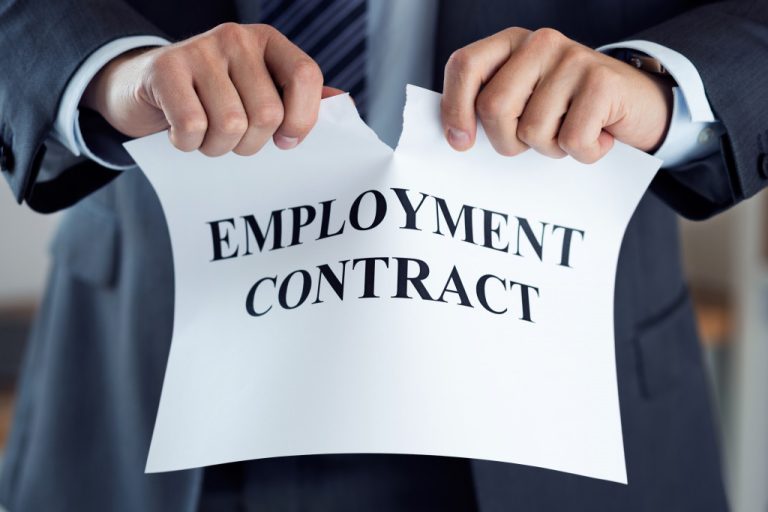- Understand your state’s legal definition of wrongful termination and labor laws.
- Gather proof to back up your arguments, such as emails, physical letters, and statements from witnesses.
- To better understand your rights and know the best course of action, seek the guidance of an attorney.
- Stay professional when dealing with your former employer to avoid any negative consequences.
- Consider all options, including negotiation, mediation, and litigation, for the best outcome.
Being terminated from a job can be a painful experience. While it is understandable that some employees may deserve to be let go due to underperformance or other reasons, being terminated wrongfully can be emotionally and financially devastating. Wrongful termination can significantly impact an employee’s career and damage their reputation. If you think you have been wrongfully terminated from your job, it is essential to know your rights. This blog post will discuss the legal aspects of wrongful termination and what you can do to protect your rights.
1. Know the Law:
Before taking any action, knowing the legal definition of wrongful termination is essential. Wrongful termination refers to an employer firing or laying off an employee for illegal reasons. Federal and state laws protect employees against unjust or discriminatory termination. Some common grounds for wrongful termination include discrimination based on race, sex, age, disability, religion, and retaliation for whistleblowing or reporting illegal acts committed by the employer.
Familiarize yourself with the relevant labor laws in your state to understand your rights and determine if the employer has violated any of them. Many states have statutes that forbid employers from taking specific actions against employees without just cause. Depending on the state, a wrongful termination claim may need to be filed within a certain period after the incident has occurred.

2. Gather Evidence:
If you believe you have been wrongfully terminated, start collecting evidence to support your claim. This can include emails, letters, witness statements, performance reviews, and other documentation supporting your case. It would be best to record all events related to your termination, including the date of termination, reasons given by the employer, and any communication between you, the employer, and management.
But make sure to keep your evidence secure. Employers may have access to all documents, emails, or other communication sent using the company’s resources and can use them against you.
3. Seek Legal Help:
Consulting an attorney specializing in labor and employment law can help you understand your rights and determine the best action. They can help you navigate the legal process, protect your interests, and uphold your rights. Suppose the attorney determines that you have been wrongfully terminated. In that case, they can help you file a complaint with the Equal Employment Opportunity Commission (EEOC) or file a lawsuit against your former employer.
You may also work with a professional employment law mediator. A mediator is an impartial third party who can facilitate a conversation between you and your former employer to resolve the dispute without going to court. This is often an effective way to resolve wrongful termination cases since it avoids a lengthy and costly legal process.

4. Remain Professional:
Even if you believe you have been wrongfully terminated, staying professional and avoiding negative comments or actions that may harm your case is essential. Consider the following:
a. Avoid retaliatory or hostile actions
Some employers may try to retaliate against employees who file a wrongful termination claim. If you receive any communication from the former employer, do not respond in anger or make any threats.
b. Remain polite and respectful
It is important to remain polite and professional when dealing with the former employer. Even if they have wrongfully terminated you, it is best to communicate respectfully, as this can help resolve any disputes quickly without legal action.
c. Avoid badmouthing your former employer
No matter how justified you may feel to do so, making negative comments or badmouthing your former employer can hurt your case and damage your reputation. Don’t vent your frustrations on social media or spread rumors about the company.
d. Keep your emotions under control
Getting emotional or angry will not help your case. Especially in court, when you are testifying, it is essential to remain calm and composed no matter how complex the situation is.
5. Consider Your Options:
You may be entitled to compensation for lost wages, benefits, and other damages if you have been wrongfully terminated. Considering all available options, including negotiation, mediation, or litigation, is essential. An experienced attorney can help you decide whether to settle out of court or pursue a lawsuit.
Losing your job can be difficult, especially if you believe you were terminated unfairly. However, by knowing your legal rights and taking the proper steps, you can protect your interests and ensure that justice is served. Remember to document everything, seek legal help, and remain professional throughout the process. Most importantly, do not give up; standing up for your rights is essential to protect yourself and other employees from being wrongfully terminated.






